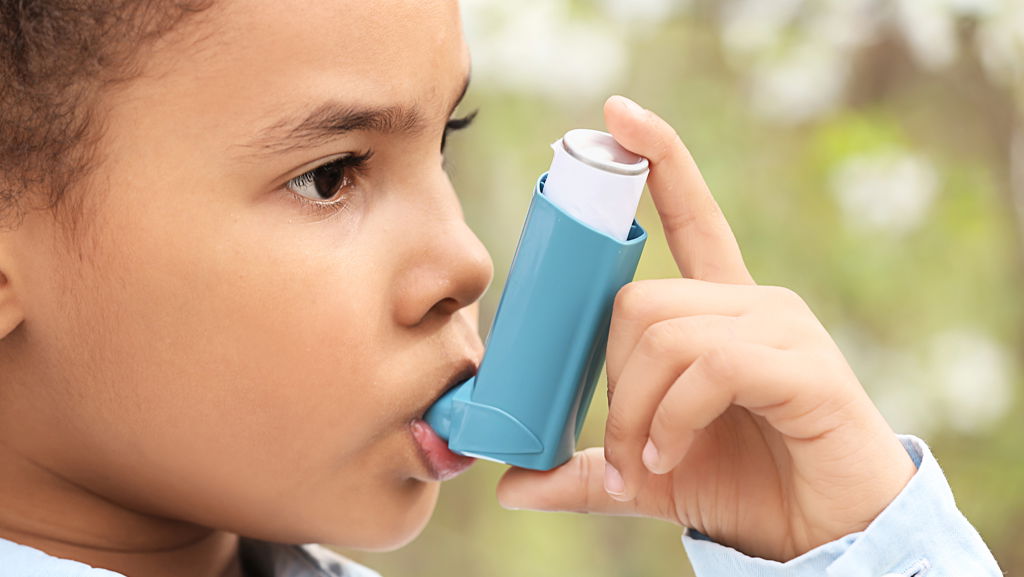Asthma is a condition that can be serious for people of all ages, but it can be especially difficult to watch your child suffer from asthma. Thankfully, there are some steps you can take to help your child manage and treat their asthma.
What is asthma?
Asthma is a chronic lung condition characterized by shortness of breath, wheezing, chest tightness, and coughing. When an asthma episode or flare-up is severe, it can result in low levels of oxygen in the blood, which can even be life threatening. During a flare-up, the airway narrows significantly and mucous production increases. Asthma can range from mild to severe.
How can you help your child manage their asthma?
The first step in helping your child manage and treat their asthma is to see an allergist. The allergist will conduct a thorough examination of your child, including a physical exam, a health history review, and allergy and pulmonary function testing. One of the main goals of this testing is to identify your child’s asthma triggers. The allergist will then, with your help, form a plan to manage your child’s asthma.
Does your child need medication for their asthma?
In many cases, the allergist will recommend a medication to help manage and treat your child’s asthma. Your child may need just one medication, or they may need a combination, depending on their age and the severity of the condition. Common asthma medications include:
- Control inhalers (e.g., steroids), aimed at preventing flare-ups
- Rescue inhalers (e.g., albuterol), which are used to immediately mitigate flare-up symptoms
- Biologics, which are designed to prevent airway inflammation
- Oral immunotherapy (allergy shots), which can help to change the way your child’s body responds to asthma triggers and allergens. Over time, this can lessen their symptoms and reduce their need for medication
Can your child avoid their asthma triggers?
Asthma can be triggered by various situations. It is helpful to be observant of your child and take note of when and where their asthma is triggered. In addition to using medication to treat episodes, your child can avoid their triggers to reduce the likelihood of a flare-up. Common asthma episode triggers include:
- Allergens like pollen, household dust, animal dander, or mold
- Exercise or participation in sports
- Emotional stress (it is worthwhile to note that both crying and laughing can trigger wheezing, chest tightness, and coughing)
- Extremes in temperature or weather, especially winter weather and dampness
- Car exhaust fumes
- Tobacco smoke
- The flu or the common cold
What is an asthma action plan?
Your child’s allergist will formulate an asthma action plan, which will help you and your child understand how to manage and treat their asthma. Your child’s asthma action plan will include:
- A list of potential flare-up triggers
- The types of medications your child takes for asthma, including how and when you should administer them
- Your child’s asthma symptoms
- Peak flow meter reading, which is a tool to help you gauge how well your child’s lungs are functioning
- When you should seek emergency medical care
With this information, you are ready to help your child manage and treat their asthma. To learn more about how you can help your child who suffers from asthma or to schedule an appointment with our allergist, we welcome you to contact us today at West River ENT & Allergy.




